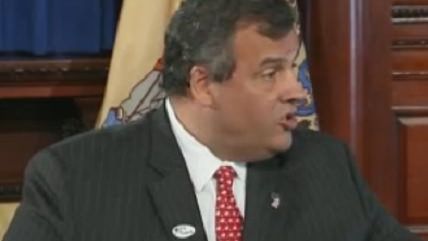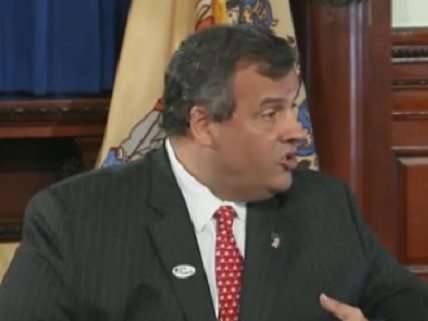Chris Christie Looking Good to Some Republicans Already Thinking About 2016
Buoyed by a landslide re-election


Republican Chris Christie was re-elected governor in New Jersey by a landslide over Barbara Buono, winning with the largest margin in a gubernatorial race since Tom Kean defeated a 33-year-old in 1985. Exit polling shows Christie won 57 percent of women, a 12 point increase over 2009, as well as 51 percent of Latino voters, a 19 point increase, and 21 percent of Black voters, a 12 point increase. He won every age group except 18-29, which just barely broke for Buono, and even 32 percent of Democrat voters after spending the summer collecting Democrat endorsements. When Frank Lautenberg died, vacating one of New Jersey's senate seats, Christie scheduled a special election for three weeks before the November election date, on a Wednesday, to avoid risking his landslide margin by sharing the top of the Republican ticket with another candidate.
Some Republicans, nevertheless, are hoping Christie can help lead them to national victory in 2016. This weekend, Mitt Romney told Meet the Press he thought Christie could "save" the Republican party. Joe Scarborough thinks Christie could unite the party, like Reagan. Rich Lowry, meanwhile, compares Christie to Bill Clinton:
Christie's implicit pitch to the national GOP will probably be that he's to Republicans in the 2010s what Bill Clinton was to the Democrats in the 1990s. In other words, he offers a different kind of politics that can potentially unlock the presidency after a period of national futility for his party.
Like Clinton when he was governor of Arkansas in the 1980s, Christie is operating on hostile partisan and cultural territory, and managing to thrive by co-opting or neutralizing natural enemies.
Like the "explainer-in-chief," Christie has a knack for public persuasion. The New Jersey governor's relentless town halls during the fight for his public-sector reforms were model examples of making an argument fearlessly and effectively.
Christie's already been maneuvering for a 2016 election run, becoming one of the most vocal opponents of the perceived libertarian faction of the Republican party so far. Rand Paul's said it was a mistake for Christie to say there wasn't room for libertarians in the party.David Harsanyi (columns at Reason here), thinks this stance is Christie rejecting ideology in favor of practicality, and not a sign of "cynical moderation." Harsanyi writes:
He might not be what conservatives want, but he may be what they need. Sure, there's a lot we don't know about Christie's politics. Though he's probably a conservative in the true sense of the word, he almost certainly isn't an ideologue. So you can imagine that the rank and file will continue to be displeased with the intensity of his political convictions. The "strain" of libertarianism that was at the center of Rand Paul's fight against the NSA, and the nasty back-and-forth with House Republicans who were aiming for a porkless Hurricane Sandy relief bill, were two examples of Christie rejecting (what he sees as) ideology for practicality. This is often confused with cynical moderation.
Over the summer, former Obama campaign manager David Plouffe called Christie a "very strong general election candidate" who was nevertheless too centrist to win in "the current Republican party."
More Reason on Chris Christie here.


Show Comments (64)